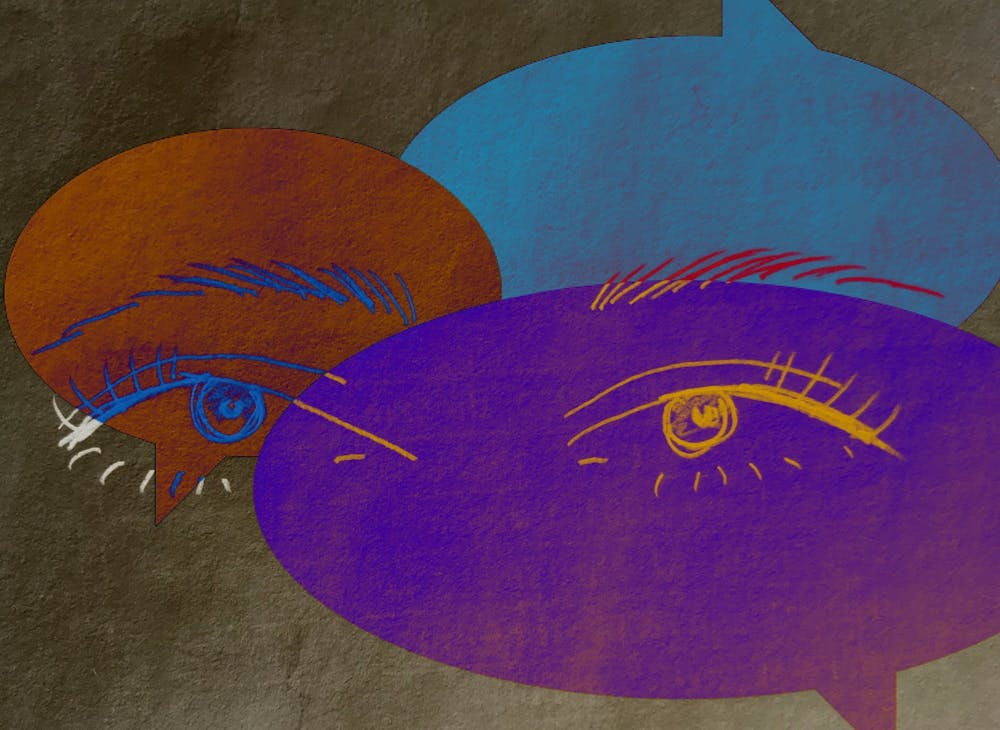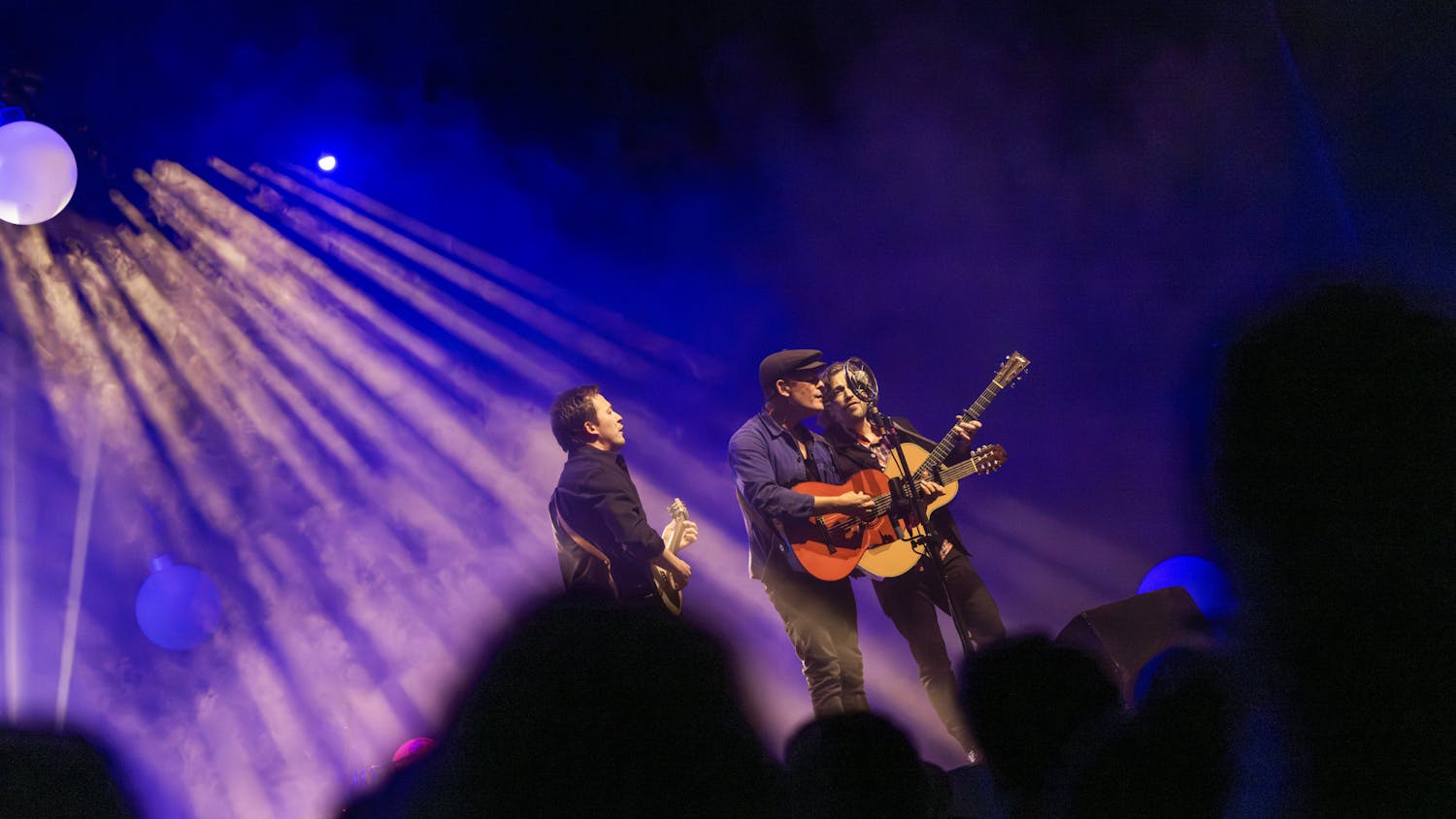1. A girl calls me Chinese in first grade. It’s the first time I remember hearing that word. It’s not an insult: She doesn’t know what "Chinese" means, and neither do I. But I burst into tears anyway. This is the day I learn that she is white, and I am not.
2. In fifth grade, my friend pulls the skin around his eyes back tight with his fingers until they become slits. He moves his fingers so his eyes slant upwards. “Chinese,” he says. He moves his fingers down. “Japanese,” he says. He’s grinning. I laugh. I know which one I am.
3. I stand in front of the mirror, my face almost pressed up against the glass as I stare at my eyelids. I wish for the fold that isn’t there, the one that would make me prettier. My mom has given me double eyelid tape. I press it deep into my skin until it sticks.
4. I love the feeling of the sun on my arms and back. My mom doesn’t love what it does to my skin. I tan more easily than anyone in my family. She slathers me in sunscreen and shakes her head at how brown I’m becoming. I stay inside.
5. Middle school is the first time that I’m in a class with other Chinese girls. There are two of them. They look nothing like me, but everyone calls me by their names anyway. Teachers are always embarrassed when it happens; they say that it’s an accident, and that they mix up names all the time. It’s hard to believe them when it happens in social studies, English, gym, algebra, geometry, geography, and earth science. It’s hard to believe them when it happens in sixth, seventh, eighth, ninth, tenth, 11th, and 12th grade. It’s hard to believe them when my favorite teacher does it and tries to defend herself. If it’s an accident, what is she defending herself from?
6. I bring my mom’s homemade dumplings to school for a cultural food day. Nobody eats them.
7. Other kids talk about my race in that callous, joking way that makes it impossible to feel offended. I’m good at math because I’m Asian. I get good grades because I’m Asian. I’m good at playing the flute, writing essays, and studying Latin because I’m Asian. How can you be mad when people tell you that you’re good at everything? I’m 13 years old. I want to be liked, so I lean into the attention.
8. I share my name, my personality, and my identity with the two other Chinese girls. We have a dress–up day at school for spirit week. The theme is twins. The three of us put up our hair into pigtails, wear red T–shirts and blue jeans, and go to school together as triplets. It’s so funny. We’re so clever.
“Who’s the superior Asian?” a classmate asks us. We categorize ourselves accordingly: smart Asian, dumb Asian, pretty Asian. I don’t remember which one I am anymore.
9. “Where are you from?”
“My parents moved here 20 years ago, and I was born here.”
“But where is your family from?”
“Oh. China.”
10. I’ve spent weeks waiting for senior yearbook superlatives. It’s a chance to get recognized for standing out. It’s been a few years, and I don’t want bigger eyes or paler skin. I don’t want to be a caricature of a “smart Asian.” I want people to know that I wrote 160 pages of a novel and dream about getting tattoos inspired by my favorite books. I want people to know that I’ve played the flute for six years, and that my favorite feeling is sitting in the middle of an orchestra. I want people to know that I grit my teeth through every STEM class I’ve ever taken, working ten times harder than everyone else because people expect me to be good at it. I want people to know that I’m going to college to study English, and that I want to be a journalist.
I get a text from the yearbook committee: “Congrats! You got ‘Most Likely to Become a Scientist.’”
I want to laugh. I think it has to be a mistake, but it’s not. I text back that I’m honored, but I don’t think the label represents me. They hand it off to someone else.
“Why would you give up the superlative?” a friend asks me. “People just think you’re smart. It’s a compliment.”
I know it won’t make sense if I tell him that it feels like nobody knows me. So I say nothing.
11. I come to Penn for college. Philly is a huge, diverse city; I think that there’s no way I’ll ever have to feel like that again. That seems true for a while. Then COVID–19 happens. I watch former President Donald Trump talk about the “Chinese virus.” I read about how Philly’s Chinatown has become a ghost town. People are afraid that Asian food and Asian people will get them sick. The mayor had to stage a photo op at a Chinese restaurant to convince people not to be racist.
I get sent back home. I’m walking down the street past a church I’ve walked by a million times before. They have a Little Free Library on the front lawn. There’s a piece of white paper posted on the door: “Closed because of the China virus.”
12. I don’t hear about the shootings in Atlanta until the day after they happen. Then, it’s impossible not to hear about it. I scroll through Twitter, Instagram, and Facebook. It’s everywhere: “Six women of Asian descent were killed.” I don’t want to hear about it, or read about it, or talk about it. It’s not real if I ignore it.
13. My professor wants to take time during class to reflect on the shooting. She emails to ask us to prepare some thoughts. I start to panic. Are people going to look at me? Are they going to expect me to say something raw, or real, or poignant? I don’t want to share anything. I log onto Zoom. When it’s my turn to speak, I almost stay silent. But I manage to stumble out a sentence.
“I’ve spent my life convincing myself that the racism I’ve experienced wasn’t real,” I say. “So to see everyone talk about it now, it’s—”
I struggle to find the word. My voice wavers. There are tears in my eyes. “Jarring,” I finish.
“Jarring” is not what I mean. I want to say that it feels fucking fake. But that’s too dramatic.
14. I call my mom. She tells me that she’s worried about me, and that I shouldn’t walk outside alone when it’s dark. I tell her I’ll be fine. I’m in Philly. “I’m more worried about you,” I say.
15. Eight days after the shooting, I’m walking outside in broad daylight. I’m on the phone with my mom again. There’s a group of guys blocking the sidewalk. I have to walk through the circle they’ve made. They stare at me as I come closer.
“Ni hao,” says one.
“Ching chong,” says another.
I don’t react. I don’t tell my mom. I’m already writing it off in my head. Later that night, I message my friend that I have a funny story.
She’s angrier than I am. Or angrier than I let myself be.
“It’s not a big deal,” I text. I don't know why I'm saying that.
I tell myself that I’ll forget this, but that’s a lie. I remember everything.







